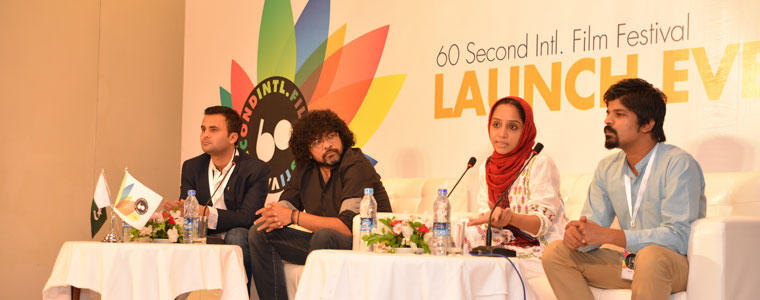Punctuated with arresting images like drops of blood next to pencils or a boy and his father enjoying a rocky beach, the 60 Second Film Festival, which USIP seeded in Pakistan, has gone international. The new competition has just finished its round of submissions, this time not only from within Pakistan, but from hundreds of contestants in countries from India to Canada and the U.S.

While the winning films from the original competition were screened beyond Pakistan, this is the first time the festival is taking submissions from outside the country. USIP has supported the festival from its inception through the Peace Innovations Fund for Pakistan, including current funding for work in South Asia. Now, the organizers have won financial backing from other partners and from corporate sponsors. Its Facebook page has garnered more than 47,000 “Likes.”
The festival aims to use quick-hit storytelling techniques to promote social awareness and activism and support budding talent. The ultimate goal is to spur constructive discussion of issues and create public pressure for improved governance.
The first festival concluded in February 2013, but the screenings continued in locations such as Nepal and Sri Lanka. It first took the road show of screenings and workshops to other South Asian countries and aims to organize screenings in the U.S., the U.K., Australia, Turkey, the Maldives, and beyond, said Abrar ul Hassan, the festival director, in an e-mail. Hassan is founder and creative director at Morango Films in Islamabad.
For the new 60 Second International Film Festival, the categories were set for a range of social issues and topics: peace, interfaith, water, creative, fiction, comedy, environment, democracy, innovation, “colors of your country,” conflict, and tolerance. More than 400 submissions came from countries including Algeria, France, India, Canada, and the U.S., and 215 qualify to be posted on the web site for the competition.
Winners are selected through a combination of public voting via the Internet and a jury of experts. The jury will review all the films and select the top three, and the public voting will determine the best film. The producer of the first-place winner in the jury selection will receive an Apple MacBook Pro; second prize is an I-Pad; and third prize is a digital single-lens reflex camera. The top prize in the public voting is an Android smartphone.
You can view all the films submitted for the earlier Pakistan competition at the festival’s website here.
Viola Gienger is a senior writer at USIP in Washington.



